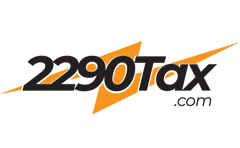Welcome to this year’s IFTA and IRP Audit Workshop. As you read you will find cool information about the Trucking Industry and the people trying to make it better.
The Welcoming & What’s New – Lonette Turner
- Almost half the attendees are industry
- 42 jurisdictions are represented
Dual Fuel Vehicle Tax Reporting – Hugh Hughson (BC)
- Dual Fuel vehicles can use two kinds of fuel at the same time. Usually Diesel and Natural Gas.
- Technology is being developed to lower fuel costs, and because it’s a lot more eco friendly.
- IFTA estimates 5% will be using dual fuels in the next 5 years.
- LNG – Liquid Natural Gas
- CNG – Compressed Natural GasProblems of infrastructure
- Problems of standardization of measurementsStraight Weight – Diesel Equivalents?
- Ballot 5 would help with standardization between the jurisdictions
- Duel Fuel vehicles must be reported as two trucks – or the data must be prorated between the two options. I’m not 100% clear on this.First as the diesel travel
- Second the Natural Gas travel
IRP Update – Tim Adams, CEO of IRP Inc
- Record numbers in attendance today
- FRP – Full Reciprocity PlanImplementation has gone pretty well. No Major Issues.
- Evaluating the impact is a few years away. IT doesn’t make sense to use the first year data because it’s a little skewed.
- IRP Charter Bus ExemptionOnly a month into it this change
- He invited feedback about this change.
- Electronic Credentials Task ForceNot only IRP – but also AAMVA, IFTA, CCMTA, CVSA and Industry
- The task force is trying to figure out how to do electronic records. They will be focusing on outreach and hope to have detailed information later this year.
- Clearing Houes Bank ChangeThe 800 million that goes through that account isn’t “big enough” to have their account with JP Morgan.
- 59 jurisdictions have to participate in the clearing house
Breakout Groups
The breakout groups were very different this year for me than last year. There was far less joking around about the typical response from the audited. That was funny last year, and surprising, but this year we just got right down to business.
We started by talking about internal controls. That’s anything that a company does to verify their data, to minimize their risk, to make sure at the earliest possible level that everything is going according to plan. I’m still trying to wrap my head around some of the details like the difference between adequate records, and accurate records, and how the two combine. I’ve been told you can have records that are adequate but inaccurate, and just using the definition of those words is a hard one for me to swallow. But It’s possible to have enough records, even if they are bad, so I guess it could happen.
Then we jumped into talking about audit planning, and training. Some states require one auditor a month to do a presentation to the others about a topic. Some do annual mandatory training. Others don’t do much, and others still do things unique to their jurisdiction.
As the conversation flowed, it was most interesting to see the differences between the jurisdictions. When you talk with the higher ups, they are quick to remind you the point of all these meetings is to create consistency. In a perfect world, every auditor should come up with similar results given the same data. But there is no perfect world, so that doesn’t happen. Each jurisdiction has a slightly different attitude, a slightly different understanding, and so they all get slightly different results. They are here to come together and try to get on the same page as much as possible for different people from different states, different countries, and different philosophies.
This year there are 119 state employees here from 42 jurisdictions. More industry is represented here then we’ve seen in a very long time. Over all, it’s a well-attended meeting! The more consistency the jurisdictions and industry can build together the better. Especially as more electronic solutions become available. Bulk fuel, fleet tracking, driver records, all of these obstacles can be met with technology, but only when everybody works together to build a solution that works for the big fleets, and the little guys. That’s what we’re here to do.
We will have part 2 of the IFTA and IRP Audit Workshop soon! So stay tuned.
Written by Casey Bullard
